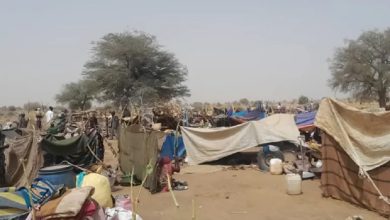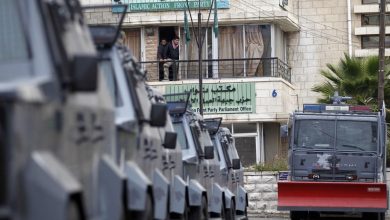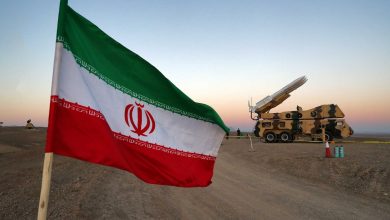The UAE-Israel Diamond Trade: Funding Israel’s War Machine and Occupation
How the Booming Diamond Trade Between the UAE and Israel Supports the Occupation and Military Aggression Against Palestinians.

Watan-The diamond trade between the UAE and Israel has witnessed a significant boom, contributing approximately one billion dollars annually to the Israeli Ministry of Defense, thus indirectly funding Israel’s war machine against Palestinians.
While Gaza remains under continuous Israeli bombardment and civilian casualties rise at alarming rates, a network of trade relations operates behind the scenes, financing Israel’s military activities and settlements in the West Bank.
The opposition website, UAE71, highlighted that one of these relations is the “diamond trade” between Abu Dhabi and Israel, which represents one of the most profitable forms of “economic normalization,” pumping billions into Israel’s coffers while Gaza and Palestine, in general, suffer under blockade and destruction.
The UAE-Israel Diamond Trade: A Key Link in Economic Normalization and War Funding
Diamonds have always been a crucial part of Israel’s economy, and their trade has been significant for the Jewish community historically. Following the occupation of Palestine in 1948, Israel became an important player in the wholesale diamond industry, with a major diamond exchange in Ramat Gan, which is one of the world’s largest and most influential diamond exchanges.
Diamond trade has been a key link between Abu Dhabi and Israel, representing over two-thirds of total trade during the early years of normalization and growing significantly with significant Emirati facilitation.
In just two and a half years after the normalization agreement, the UAE’s diamond trade increased by 72% in raw diamonds and 50% in polished diamonds, with normalization being a key factor in this rise.
Reports indicate that the UAE-Israel diamond trade is not a recent development but grew in secret over two decades before the normalization agreement in September 2020. Behind this secret communication stood Ahmed Bin Sulaim, the CEO of the Dubai Multi Commodities Centre and the head of the Dubai Diamond Exchange.
Before normalization, Israeli diamond companies had to use indirect routes through Europe or Asia to send diamonds to the UAE, but the normalization agreement allowed direct shipments of raw and polished diamonds, reducing costs and time for Israeli diamond traders.
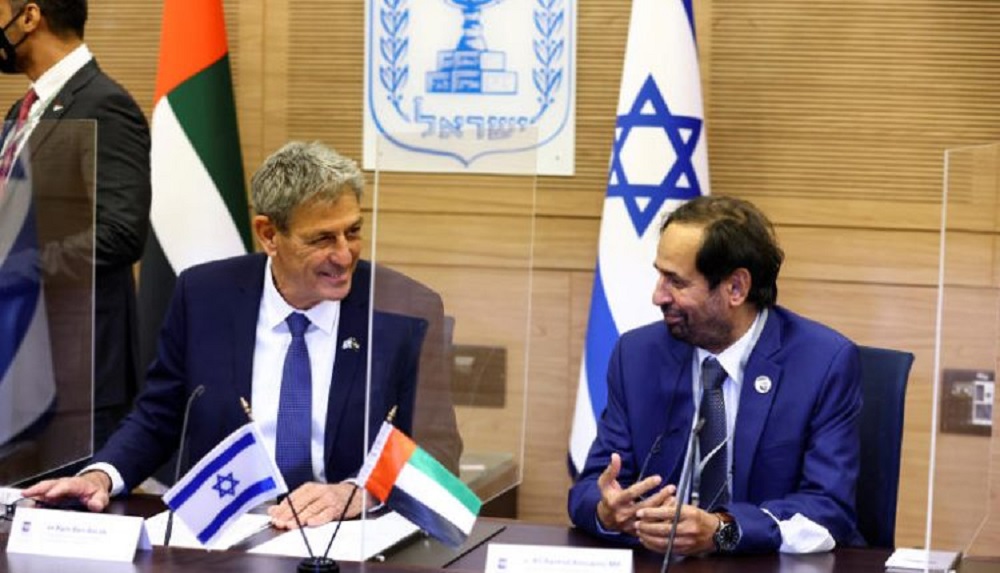
UAE-Israel Diamond Trade: Boosted by Economic Partnerships and Funding Military Aggression
Shortly after signing the normalization agreement, Abu Dhabi took the diamond trade with Israel public, signing an agreement to strengthen trade between the Israeli Diamond Exchange and the Dubai Diamond Exchange on September 17, 2020, just two days after the normalization deal.
As part of this agreement, the Dubai Diamond Exchange opened its office in Ramat Gan that same year, and the Israeli Diamond Exchange opened its office in Dubai in February 2022, officially announcing it by the end of the year. As a result, the UAE became a primary gateway for raw diamond supplies to Israel, as well as a strategic point for managing African diamond imports, bypassing international scrutiny.
This reinforced Israel’s position as one of the world’s largest diamond industry hubs, directly supporting the Israeli economy. Diamond trade is one of the primary financial sources that fund Israeli government institutions, including the military, which uses these funds to kill Palestinian men, women, and children.
By the end of 2022, 78 Israeli companies were operating in the Dubai Multi Commodities Centre, a third of which were involved in diamond trade, according to the CEO of the Dubai Diamond Exchange, Ahmed Bin Sulaim, who revealed that he had been visiting Israel since 2001 to strengthen the diamond trade.
Amid the ongoing aggression against Gaza, the diamond trade between Abu Dhabi and Israel seems more than just about precious stones; it represents a clear model of how economic relations can be used to fuel violence and fund Israel’s military apparatus.
Available data shows that diamond trade between the two parties is not symbolic but strategic. In 2021, Israel exported $188 million worth of rough diamonds to the UAE and imported $244 million worth, which made up 11.8% of its total rough diamond imports for that year.
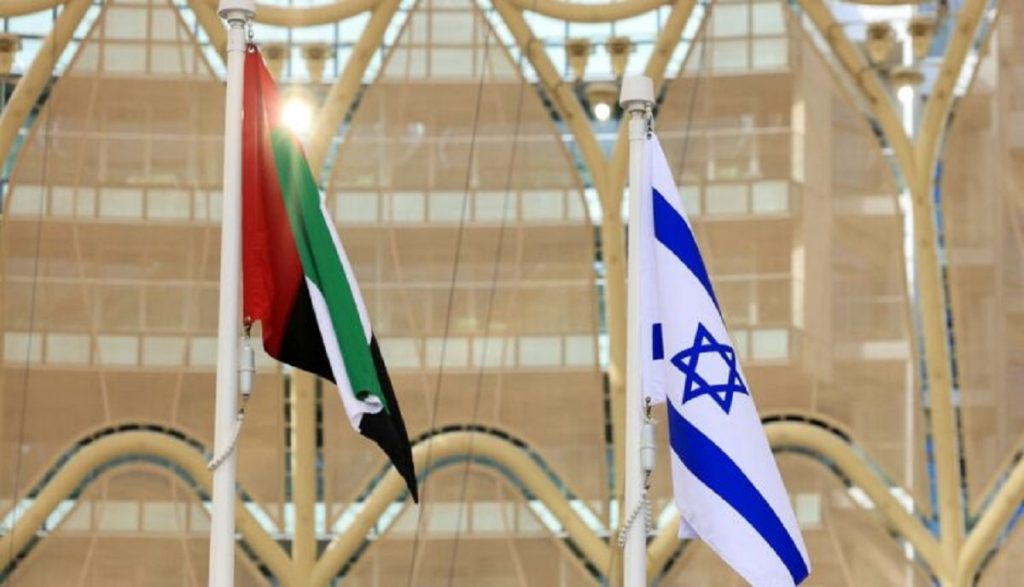
UAE-Israel Diamond Trade: $1.75 Billion in 2022, Funding Israeli Military Aggression
Despite a decrease in the volume of rough diamond trade in Israel in 2023, an Israeli statistic revealed that diamond trade with the UAE represented 27% of Israel’s total diamond imports and exports that year.
In March 2024, during Israel’s war on Gaza and its economic blockade, Tel Aviv imported $57 million worth of rough diamonds from the UAE, which accounted for 51% of its imports for that month. Meanwhile, the UAE imported $20 million worth of rough diamonds, representing 19% of Israeli exports.
A portion of the diamonds Israel imports goes to the military for military manufacturing, while the rest is re-exported after being cut and polished in specialized diamond trade centers.
The diamond industry contributes approximately one billion dollars annually to the Israeli Ministry of Defense, making it a massive source of funding for Israel’s brutal occupation operations in Palestinian territories.
Reports indicate that a significant percentage of those involved in this trade are former Israeli generals and Mossad agents who have transitioned into arms trade, using their profits to support the destructive military machine of the occupation and finance the construction of Israeli settlements in Palestinian territories.
Among these figures is Boaz Moldovsky, head of the Israeli Diamond Exchange, who served as an officer in the Israeli Air Force and opened the office in Dubai in 2022, proudly highlighted by the Emirati magazine “New Jewelry.”
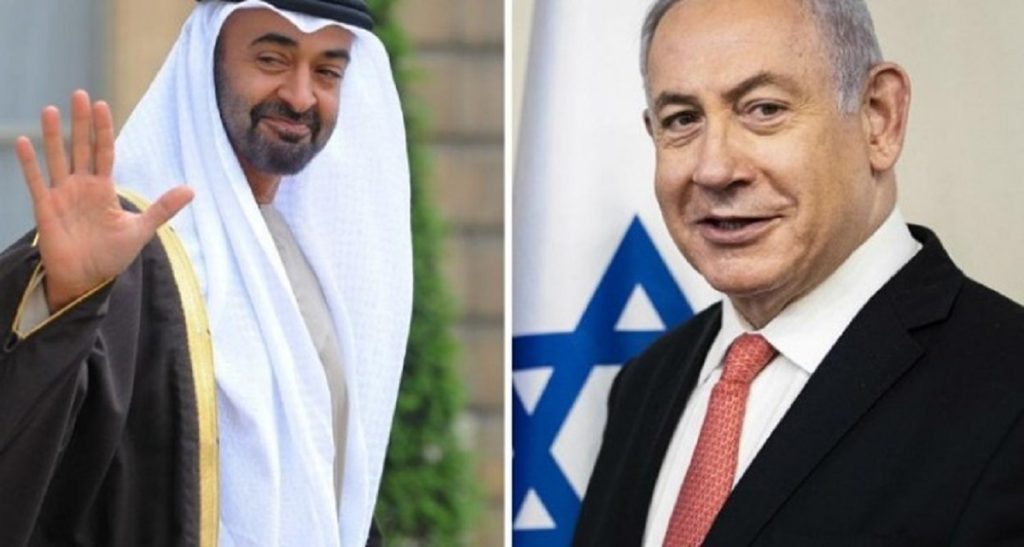
Lev Leviev’s Role in Israeli Settlements: UAE-Israel Diamond Trade Fuels Military Occupation
Another notable figure is Israeli billionaire and prominent diamond mogul Lev Leviev, owner of “Africa Israel” investments and its subsidiary Dania Sibus, which is involved in building projects in Israeli settlements in the West Bank.
Leviev’s companies have faced international criticism and actions. For example, in 2008, the British government canceled plans to move its embassy to a building owned by Africa Israel due to the company’s settlement activities.
In response to these activities, pro-Palestinian advocacy groups organized campaigns to boycott Leviev’s businesses, leading many organizations and public figures to distance themselves from him. For instance, UNICEF and Oxfam publicly rejected Leviev’s donations due to concerns about his company’s role in settlement construction.
Thus, the impact of Emirati diamonds goes beyond the Israeli economy, as it reshapes the system of “unconditional economic normalization,” granting Israel more resources without any commitment to changing its policies toward Palestinians. Despite Abu Dhabi’s promises to halt settlement construction and work toward a Palestinian state, the normalization agreements with Tel Aviv contain no provisions to safeguard Palestinian rights.
While the Palestinian people continue to suffer under blockade and ongoing aggression, these economic partnerships continue to generate significant revenue for the occupation, contributing to the funding of wars against Palestinians and increasing levels of violence and destruction in the occupied territories.
The diamonds that shine in Tel Aviv’s stores are not just luxurious adornments pursued by the wealthy; they are part of an economic system that fuels a military machine that continues to crush the skulls of Arab children in Palestine.
While Gaza is under siege and everything is being bombed, billions of dollars from the diamond sector flow into the occupation’s coffers, fueling budgets that produce bombs and planes that tear through the bodies of Palestinians.



